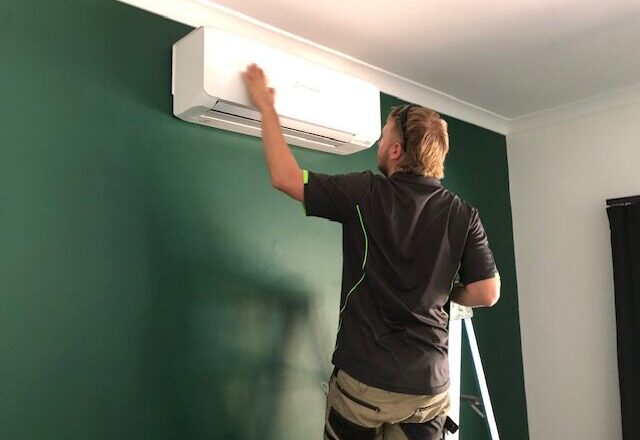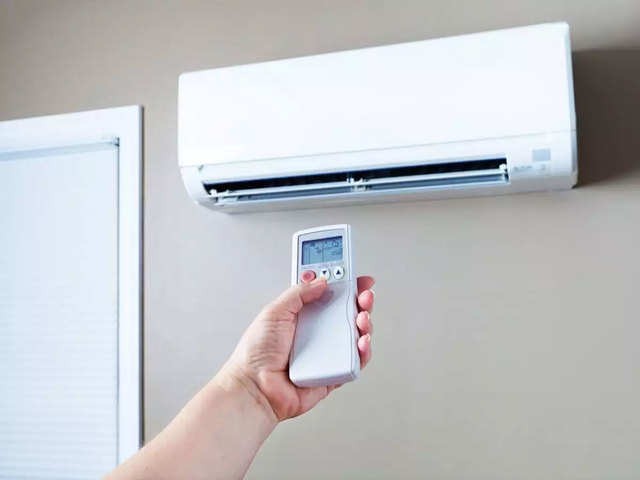If you’ve ever walked into a room with your air conditioning running, only to notice your unit is covered in ice, you’re not alone. Ice build-up on an air conditioner can be a common yet troublesome issue, often leading to reduced efficiency, higher energy costs, and even costly repairs. While it may seem like a minor inconvenience, ice build-up can actually signal a serious problem that, if left unchecked, could damage your system. So, how can you prevent ice from forming on your air conditioning unit? Let’s explore the causes, effects, and practical steps you can take to maintain a smooth-running air conditioning system.
Understanding Ice Build-Up on Your Air Conditioning Unit
Ice forming on your air conditioning unit, especially on the evaporator coils, occurs when the system is not functioning optimally. The evaporator coils are responsible for absorbing heat from the air in your home, and in doing so, they can cool the air down drastically. If the coils become too cold, moisture in the air can freeze, leading to ice build-up. There are a variety of reasons why ice may form on your air conditioner, but the most common causes include:
- Poor Airflow: Air conditioning units need proper airflow to work efficiently. If the airflow is restricted, the coils may get too cold, causing condensation to freeze.
- Low Refrigerant Levels: Refrigerant is what absorbs and removes heat from the air. If your refrigerant levels are too low, your AC will not be able to absorb heat effectively, leading to freezing.
- Dirty Coils or Filters: When the evaporator coils or air filters become clogged with dirt or dust, the unit cannot remove heat effectively, leading to freezing.
- Thermostat Malfunction: If your thermostat is not functioning properly, it could be telling your AC unit to keep running when it should be cycling off, causing the coils to freeze.
- Mechanical Problems: Malfunctions in components like the blower fan or the compressor can lead to ice build-up as the unit struggles to operate normally.
Why Ice Build-Up Is a Problem
Aside from the obvious aesthetic concerns, ice build-up on your air conditioning unit can cause several issues that can impact both the performance of your system and the comfort of your home:
- Reduced Efficiency: Ice on the evaporator coils reduces the surface area available for heat exchange, making it more difficult for your air conditioner to cool the air. This leads to a decrease in your system’s efficiency and increases energy consumption.
- System Damage: If ice is allowed to build up for too long, it can cause damage to components of your air conditioning system, such as the compressor. In some cases, prolonged ice build-up can lead to the failure of the entire unit, requiring expensive repairs or replacements.
- Increased Costs: When your air conditioning system is not running at full efficiency, it uses more energy to maintain a comfortable temperature in your home. This leads to higher electricity bills.
- Poor Comfort: Ice build-up may also result in uneven cooling, leaving certain parts of your home warmer than others. This disrupts the balance and comfort of your living spaces.
How to Prevent Ice Build-Up on Your Air Conditioning Unit
Now that we understand the causes and consequences of ice build-up, let’s dive into the steps you can take to prevent it and keep your air conditioning unit running efficiently.
1. Ensure Proper Airflow
The key to preventing ice build-up is maintaining good airflow throughout the system. When airflow is obstructed, the refrigerant in the system cannot absorb heat effectively, which can cause the coils to freeze. Here are a few tips to ensure good airflow:
- Check and Replace Air Filters Regularly: Air filters trap dust, dirt, and debris from the air, but over time, they can become clogged, restricting airflow. Make it a habit to check your air filters every 1–3 months and replace them when necessary.
- Clear Debris Around the Unit: Leaves, dirt, and other debris can accumulate around the air conditioning unit and block airflow. Regularly inspect the area around the unit and ensure there is at least two feet of clearance around the unit to allow for optimal airflow.
- Clean Vents and Ductwork: Dust and debris can accumulate inside the vents and ductwork, leading to poor airflow. Cleaning these areas every year will help maintain proper airflow.
2. Monitor Refrigerant Levels
Low refrigerant levels can cause the coils to freeze, as the system struggles to absorb heat from the air. If you suspect that your AC is low on refrigerant, it’s important to have it checked and refilled by a professional. Refrigerant leaks are not only harmful to your system but can also be detrimental to the environment, so it’s important to address any leaks promptly.
3. Clean the Evaporator Coils
Dirty evaporator coils can cause the system to overheat and freeze, as they cannot absorb heat effectively. To keep your air conditioning unit in good working condition, clean the evaporator coils at least once a year. This can be done by turning off the power to the unit, removing the front cover, and using a soft brush or a coil cleaner to remove any dirt or debris. If you’re unsure about how to clean the coils, it’s a good idea to hire a professional technician.
4. Inspect the Blower Fan
The blower fan is responsible for circulating air over the evaporator coils. If the fan is malfunctioning or not spinning at the correct speed, it can cause the coils to freeze. Make sure that the blower fan is working properly, and if you notice any issues, contact a professional to inspect and repair the fan.
5. Set the Thermostat Correctly
Ensure your thermostat is set to an appropriate temperature. Setting the thermostat too low can overwork your air conditioning system, leading to freezing. It’s generally recommended to set your thermostat between 72°F and 78°F (22°C to 25°C) for optimal cooling without overtaxing the system. Additionally, make sure the thermostat is placed in an area away from direct sunlight or heat sources to avoid inaccurate readings.
6. Regularly Service Your Air Conditioner
To keep your air conditioning unit in top condition and prevent ice build-up, schedule regular maintenance with a professional HVAC technician. They can inspect the system, clean the coils, check the refrigerant levels, and ensure everything is functioning correctly. A well-maintained air conditioning unit is less likely to experience problems like ice build-up, and regular servicing can extend the life of the unit.
7. Use a Dehumidifier
In areas with high humidity, moisture in the air can contribute to ice build-up. Using a dehumidifier can help reduce the moisture in the air, preventing excess water from condensing on the coils and freezing. This is especially important in humid climates or during the summer months when humidity levels tend to be higher. Additionally, regular maintenance, such as Boon Keng Aircon Servicing, can ensure that your air conditioning system remains efficient and free from issues like ice formation, enhancing both its longevity and performance.
Conclusion
Ice build-up on your air conditioning unit can be a frustrating problem, but with a little preventative maintenance, it is possible to avoid this issue and ensure your AC unit runs efficiently. By ensuring proper airflow, monitoring refrigerant levels, cleaning coils, inspecting components like the blower fan, and scheduling regular maintenance, you can prevent ice build-up and keep your air conditioning system running smoothly. If you ever notice ice on your unit, it’s important to address the issue promptly to avoid damage and ensure your system remains in top condition. With these tips in mind, you’ll be able to enjoy a cool and comfortable home all year round.




